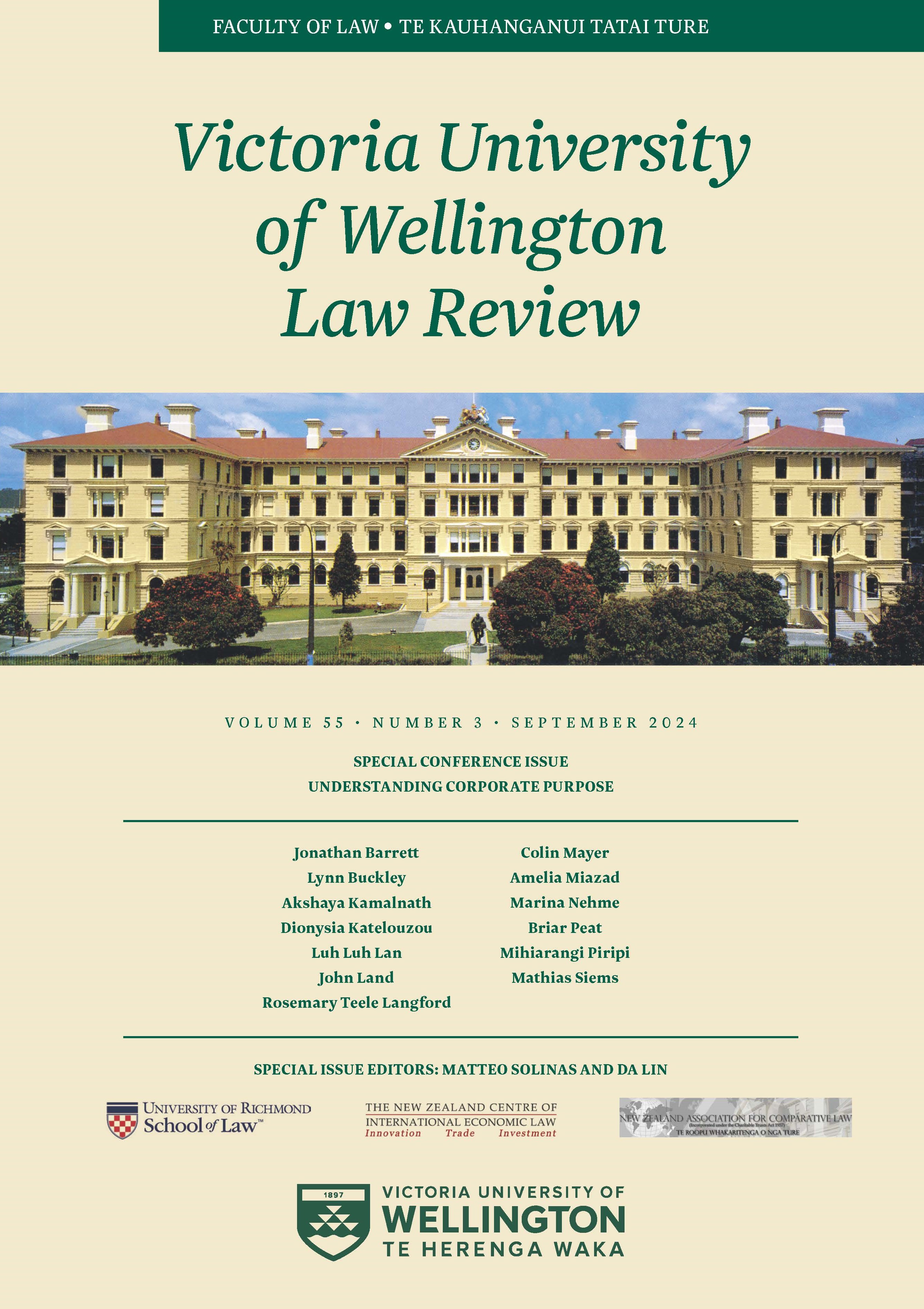Navigating ESG in Corporate Governance: Balancing Shareholder Primacy with Sustainable Business Practices
DOI:
https://doi.org/10.26686/vuwlr.v55i3.9838Abstract
Advancing the environmental, social and governance (ESG) agenda through company law presents challenges, particularly in common law systems, where directors' duties are traditionally seen as prioritising the "interests of the company", a concept closely tied to shareholder interests. Courts generally avoid evaluating the merits of business decisions and focus instead on ensuring that directors follow appropriate decision-making processes. Despite this procedural focus, ESG concerns are becoming an increasingly significant factor in corporate governance. Companies are being pressured to adopt sustainable business practices, and regulatory frameworks are evolving to encourage or require directors to integrate ESG factors into their decision-making. This article explores the evolving role of directors in advancing ESG goals and argues that, while courts continue to emphasise procedural correctness, directors must adapt to the growing societal, regulatory and market expectations surrounding ESG.
Downloads
Downloads
Published
How to Cite
Issue
Section
License
Authors retain copyright in their work published in the Victoria University of Wellington Law Review.


